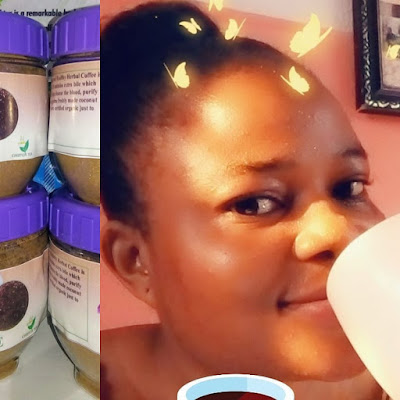Coffee is one of those things- you either like it or dislike it. You know if you love the taste or not (or if it’s just a reason to drink sugar and cream). You know how it makes you feel (i.e. your gut, your mind, etc.).
Not to mention the crazy headlines that say coffee is great, and the next day you should avoid it! It can be so confusing and it is a constant question I get asked as a coach.
There is actual science behind why different people react differently to it. It’s a matter of your genetics and how much coffee you’re used to drinking.
NOTE: Coffee does not equal caffeine. Coffee contains between 50-400 mg of caffeine/cup, averaging around 100 mg/cup. Coffee is one of the most popular ways to consume this stimulant. But a cup of coffee contains a lot of things over and above the caffeine. Not just water, but antioxidants, and hundreds of other compounds. These are the reasons drinking a cup of coffee is not the same as taking a caffeine pill. And decaffeinated coffee has a lot less caffeine; but, beware it still contains some.
Let’s look at caffeine metabolism, its effects on the mind and body, and whether coffee drinkers have higher or lower risks of disease. Then here are some things to consider when deciding if coffee is for you or not.
Caffeine metabolism
Not all people metabolize caffeine at the same speed. How fast you metabolize caffeine will impact how you’re affected by the caffeine. In fact, caffeine metabolism can be up to 40x faster in some people than others.
About half of us are “slow” metabolizers of caffeine. We can get jitters, heart palpitations, and feel “wired” for up to 9 hours after having a coffee. That’s how it is for some people by the way, why some avoid that cuppa joe! The other half is “fast” metabolizersof caffeine. They get energy and increased alertnessand are back to normal a few hours later.
This is part of the reason those headlines contradict each other so much – because we’re all different!
The effects of coffee (and caffeine) on the mind and body
NOTE: Most studies look at caffeinated coffee, not decaf.
The effects of coffee (and caffeine) on the mind and body also differ between people; this is partly from the metabolism mentioned. But it also has to do with your body’s amazing ability to adapt. Many people who start drinking coffee feel the effects a lot more than people who have coffee every day.
Here’s a list of these effects (that usually decrease with long-term use):
Stimulates the brain
Boosts metabolism
Boosts energy and exercise performance
Increases your stress hormone cortisol
Dehydrates
So, while some of these effects are good and some aren’t, you need to see how they affect you and decide if it’s worth it or not.
Coffee and health risks
There are tons of studies on the health effects of coffee, and whether coffee drinkers are more or less likely to get certain conditions.
Here’s a quick summary of what coffee can lead to:
Caffeine addiction and withdrawal symptoms (e.g. a headache, fatigue, irritability)
Increased sleep disruption
Lowerrisk of Alzheimer’s and Parkinson’s
Lowerrisk of developing type 2 diabetes
Lowerrisk of certain liver diseases
Lower risk of death (“all cause mortality”)
Mixed reviews on whether it lowers risks of cancer and heart disease.
Many of the health benefits exist even for decaf coffee (except the caffeine addiction and sleep issues).
NOTE: What’s super-important to note here is that coffee intake is just one of many, many factors that can affect your risks for these diseases. Please never think regular coffee intake is the one thing that can help you overcome these risks. You are health-conscious and know that eating a nutrient-rich whole foods diet, reducing stress, and getting enough sleep and exercise are all critical things to consider for your disease risk. It’s not just about the coffee
Should you drink coffee or not?
There area few things to consider when deciding whether you should drink coffee. No one food or drink will make or break your long-term health.
Caffeinated coffee is not recommendedfor:
Peoplewith arrhythmias (e.g. irregular heartbeat)
Peoplewho often feel anxious
Peoplewho have trouble sleeping
Peoplewho are pregnant
Children and teens.
If none of these apply, then monitor how your body reacts when you have coffee.
Does it:
Give you the jitters?
Increase anxious feelings?
Affect your sleep?
Give you heart palpitations?
Affect your digestion (e.g. heartburn, etc.)?
Give you a reason to drink a lot of sugar and cream?
Depending on how your body reacts, decide whether these reactions are worth it to you. If you’re not sure, try eliminating it for a while and see the difference.
TEA AND WELLNESS BLOG THAT WRITES ALL HUMANS NEED TO BE IN GOOD HEALTH AND LIFE CHOICES.
Subscribe to:
Post Comments (Atom)
DIY Rose Petal Recipe for Small Business Success"
The Basics and Benefits of Rose Petals Rose flower and its components are one of the most famous and loved flowers in history. They are a un...

-
Losing weight is one of the prevalent health issues on the internet. Millions of people all over the world have come across some article...
-
According to Knuppel, Since we don’t have all the answers, biologically, behind anxiety and depression, there’s no clear reason why chan...
-
The Miracle of Moringa Tree Leaves (Moringa Oleifera), commonly called the 'drumstick tree", and 'horseradish tree' i...



No comments:
Post a Comment